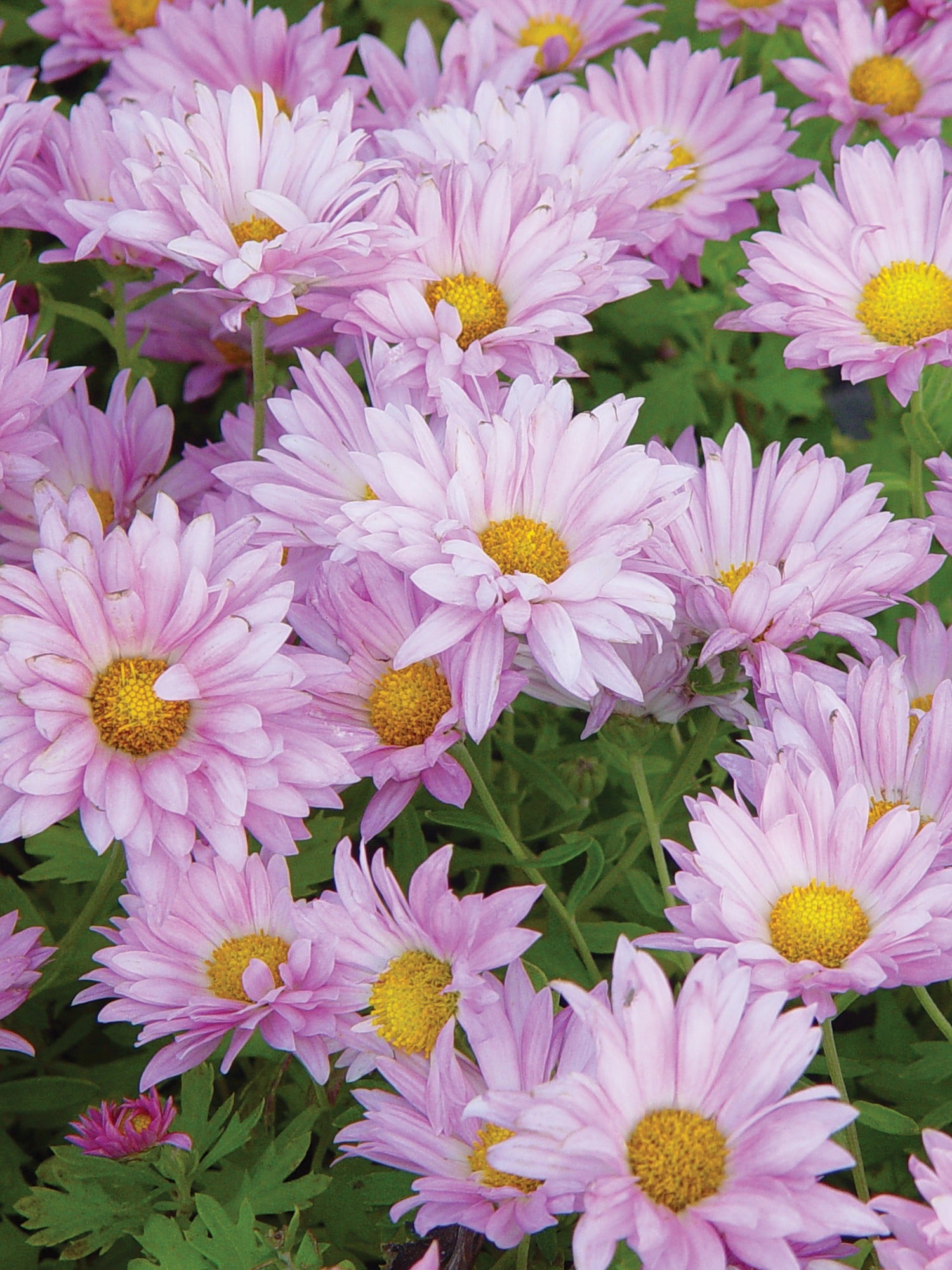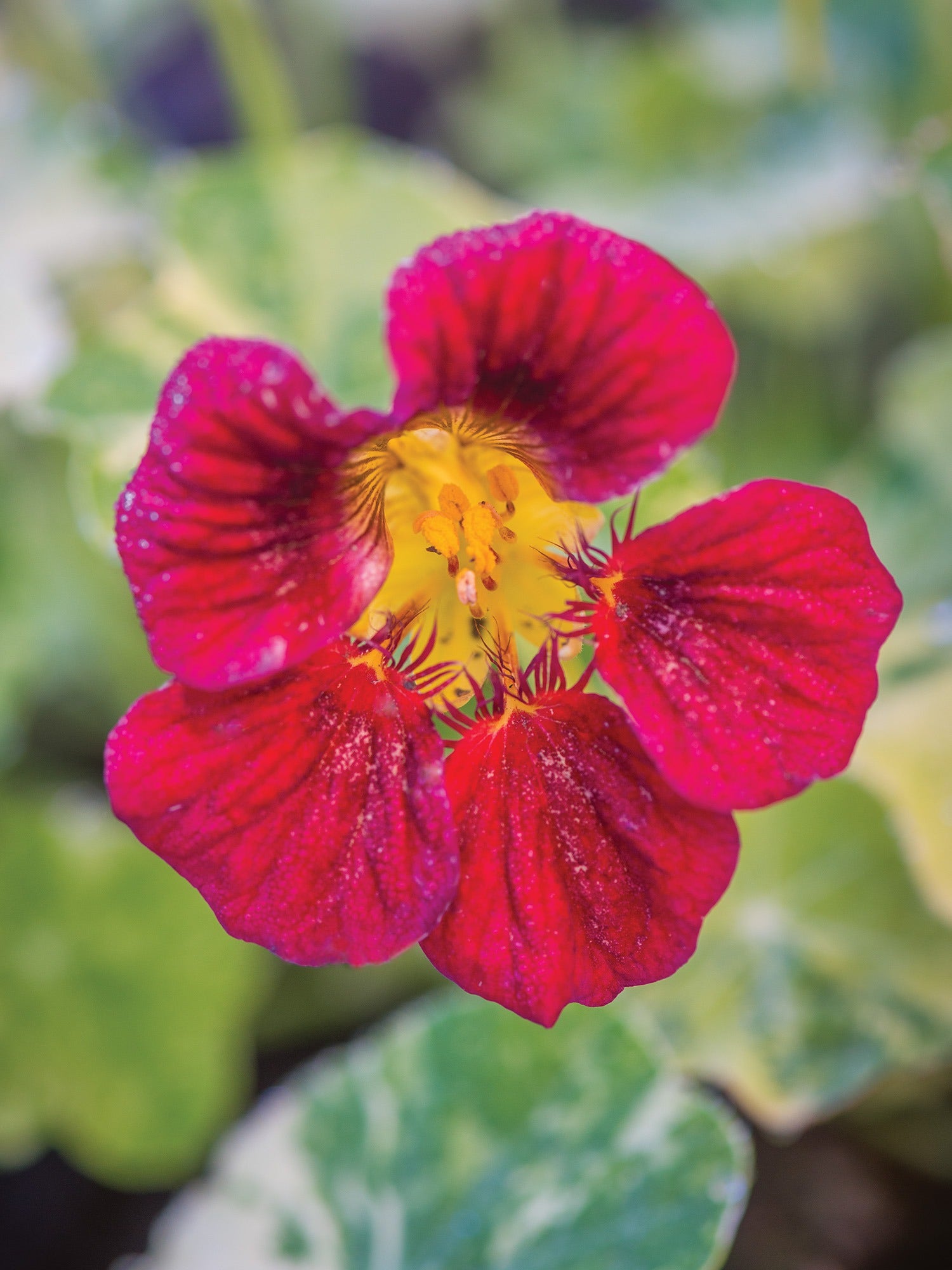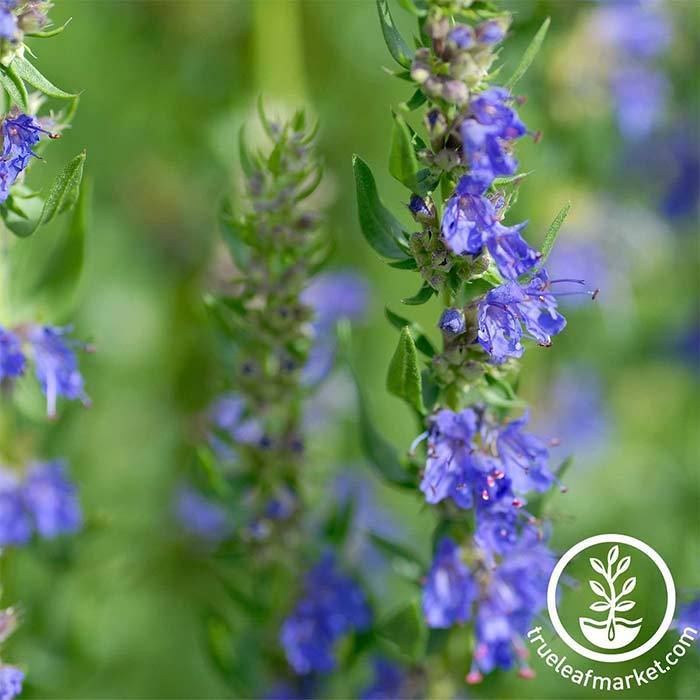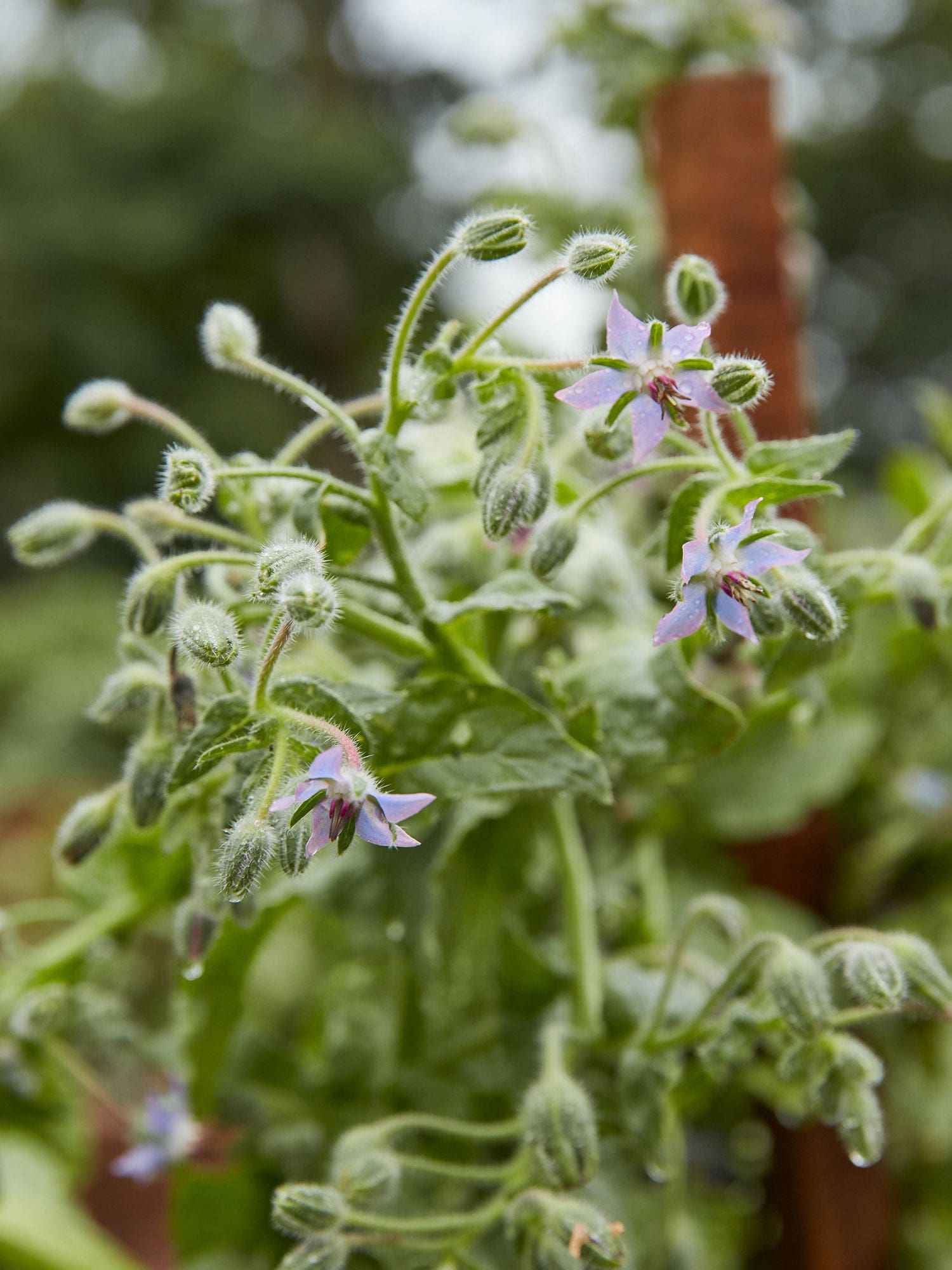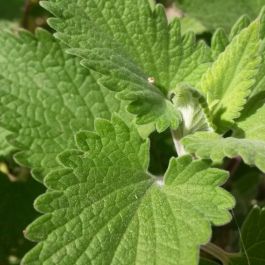8 outstanding flowers to plant in a vegetable garden to deter pests – and which ones they repel
Any vegetable garden can be beautiful and pest-free by adding some of these flowers as companion planting

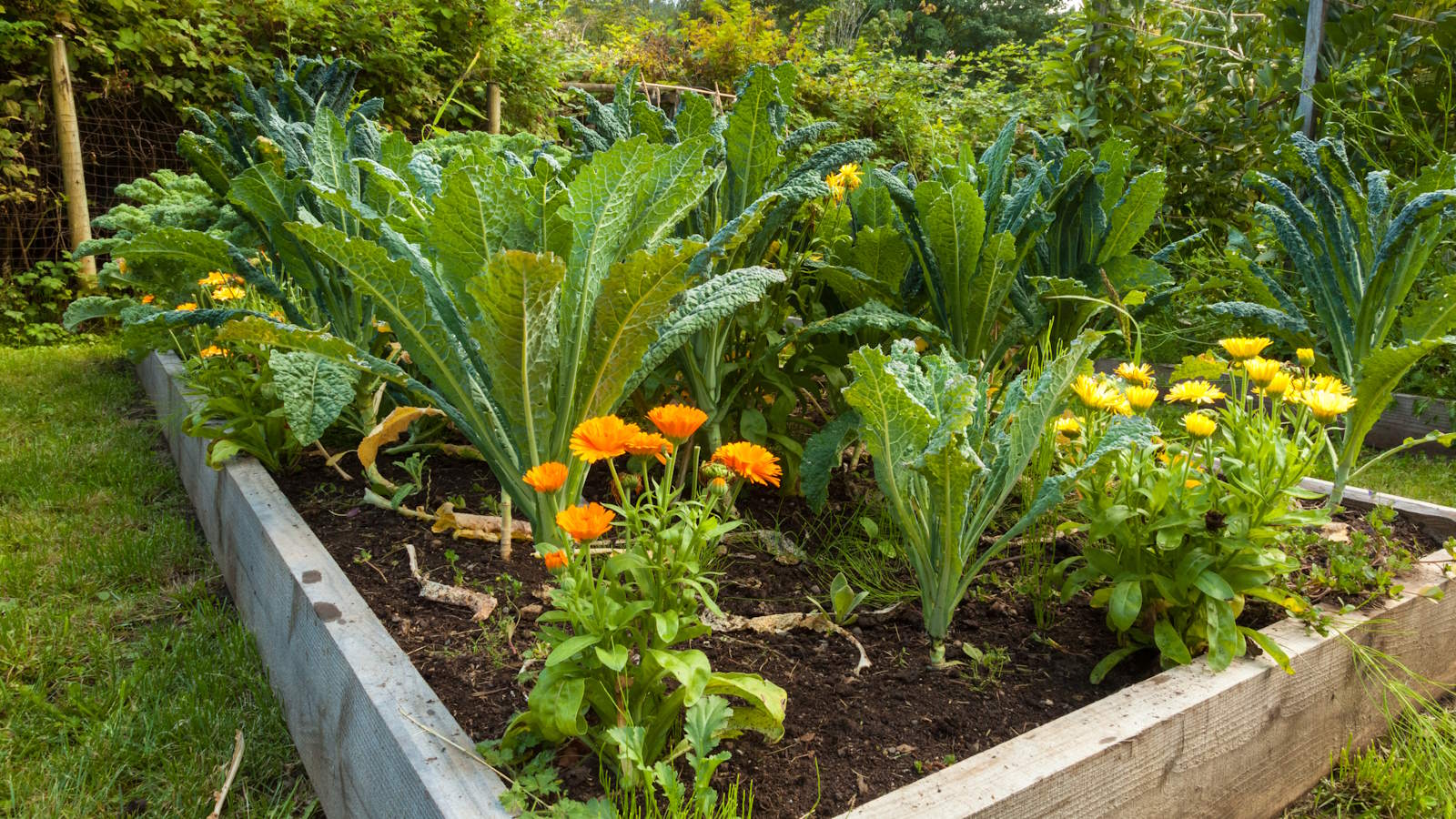
Design expertise in your inbox – from inspiring decorating ideas and beautiful celebrity homes to practical gardening advice and shopping round-ups.
You are now subscribed
Your newsletter sign-up was successful
Want to add more newsletters?

Twice a week
Homes&Gardens
The ultimate interior design resource from the world's leading experts - discover inspiring decorating ideas, color scheming know-how, garden inspiration and shopping expertise.

Once a week
In The Loop from Next In Design
Members of the Next in Design Circle will receive In the Loop, our weekly email filled with trade news, names to know and spotlight moments. Together we’re building a brighter design future.

Twice a week
Cucina
Whether you’re passionate about hosting exquisite dinners, experimenting with culinary trends, or perfecting your kitchen's design with timeless elegance and innovative functionality, this newsletter is here to inspire
Pests are an all too common issue for all vegetable growers. It is something we all have to face and there are different approaches to take against the list of pests who want to feast on the leaves, stems, and fruit of vegetable plants.
Far too often, the first move is to reach for the bottles of chemical pesticides to deal with pest problems. However, taking proactive steps to avoid potential pest problems is a much-preferred way to have a flourishing pest-free vegetable garden.
Companion planting is a fantastic method to protect your vegetables and you can combine beauty with usefulness. This is because there are some great flowers to grow that will look amazing and protect your crops from all manner of nasties.
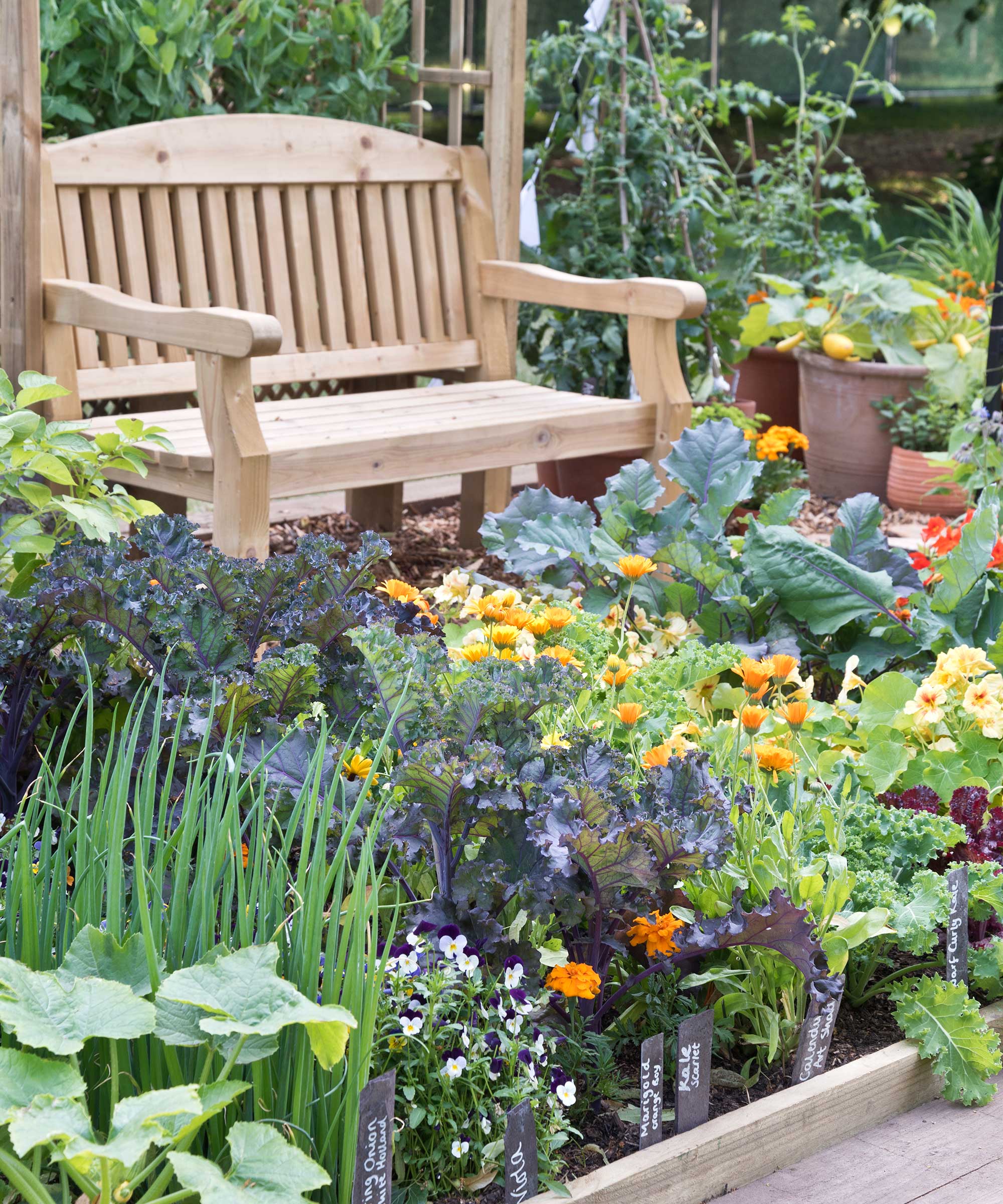
8 flowers for vegetable garden pest control
Planting any of the flowers below can be valuable when planning a vegetable garden as they can deter a wide range of pests. Organic gardening options and using natural companions as pest control should always be the preferred option to deal with pest issues. Here are 8 fantastic plants to deter pests in vegetable gardens.
1. Calendula
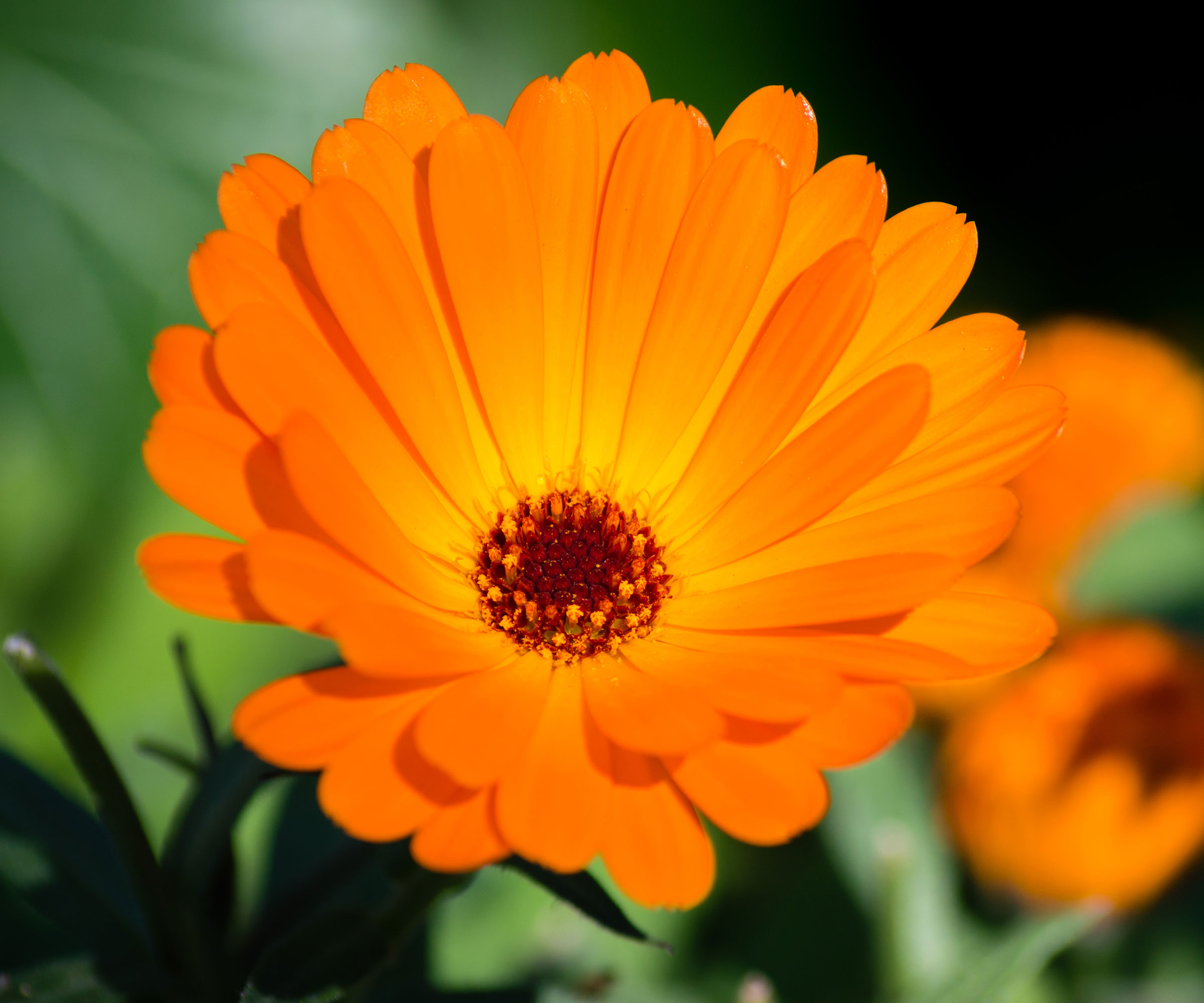
Calendula are annual flowers that are easy to grow from seed. The flowers come in bright colors - in shades of yellow, orange, and gold - as calendula are both attractive and useful plants to add to a vegetable garden. As well as looking good and deterring a long list of pests, calendula are edible flowers too.
Calendula are also known as pot marigolds, but they are not to be confused with marigolds. Despite being called pot marigolds, calendula is not a true marigold. It is in a different family and originates from a different part of the world - it can be confusing.
Known to repel: Whitefly, aphids, cucumber beetle, flea beetle, squash beetle, corn earworm
Design expertise in your inbox – from inspiring decorating ideas and beautiful celebrity homes to practical gardening advice and shopping round-ups.
Discover the range of calendula seeds to sow at Burpee
2. Chrysanthemums
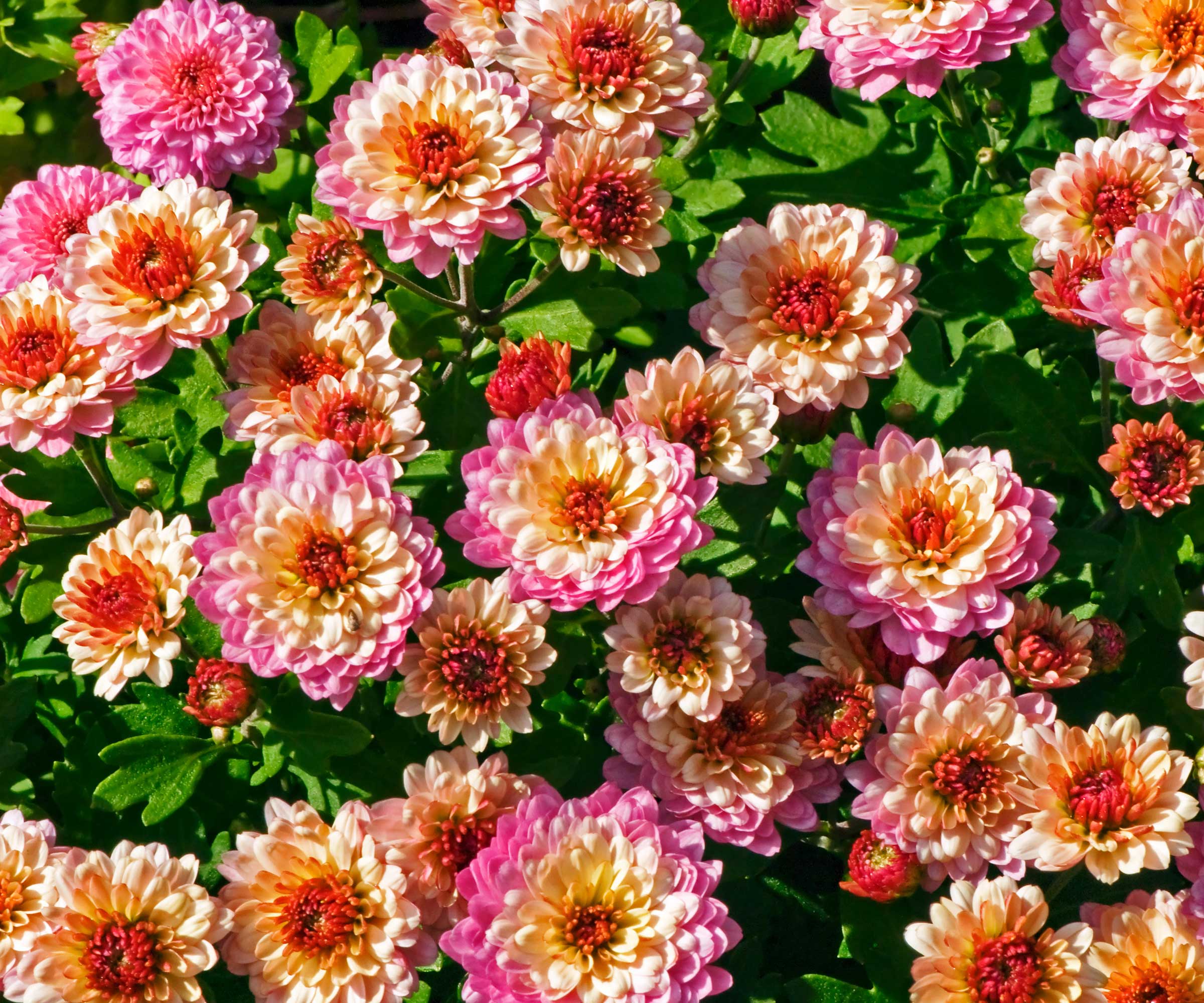
Chrysanthemums - commonly known as mums - are great perennial plants that harbour a secret that makes them great for companion planting. The blooms of chrysanthemums contain pyrethrum, a natural insecticide and a common ingredient in many natural insect repellents.
It means that planting chrysanthemums can deter ants and many other pests, while the blooms of the flowers can also be turned into homemade bug sprays. Either plant mums individually around plants you want to protect or add a row of them to create a border around vegetable beds or raised beds.
Known to repel: Ants, whiteflies, ticks, mosquitos, thrips, spider mites, beetles, aphids
3. Marigolds
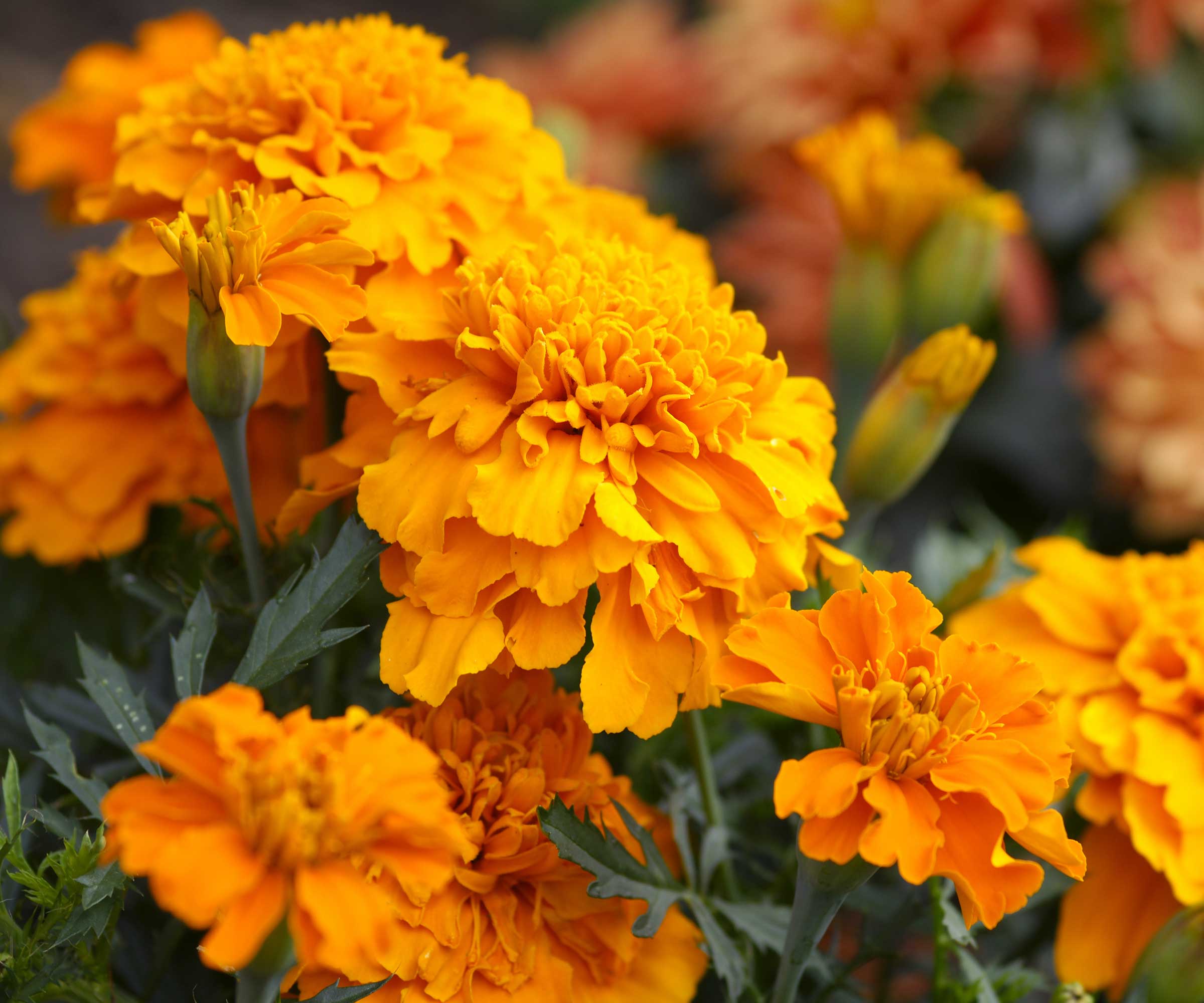
Marigolds are bright and cheery additions to any garden. They are great flowers to attract bees and other insects - which can perform natural pest control for you. Marigolds also keep bugs away and repel many pests from eating your precious crops. There are different types of marigolds and the French marigolds and signet types are the best for companion planting.
Marigolds are particularly efficient at repelling root-knot nematodes, and other nematodes, due to the chemicals emitted from their roots. These plants are also known to attract slugs and snails so can be used as trap plants to keep them away from other vegetables. Overall, it is highly recommended to plant marigolds in a vegetable garden.
Known to repel: Nematodes. cabbage moths, tomato hornworms, squash bugs, Mexican bean beetles, flies, wasps, mosquitoes
Discover the range of marigold flower seeds at True Leaf Market
4. Nasturtiums
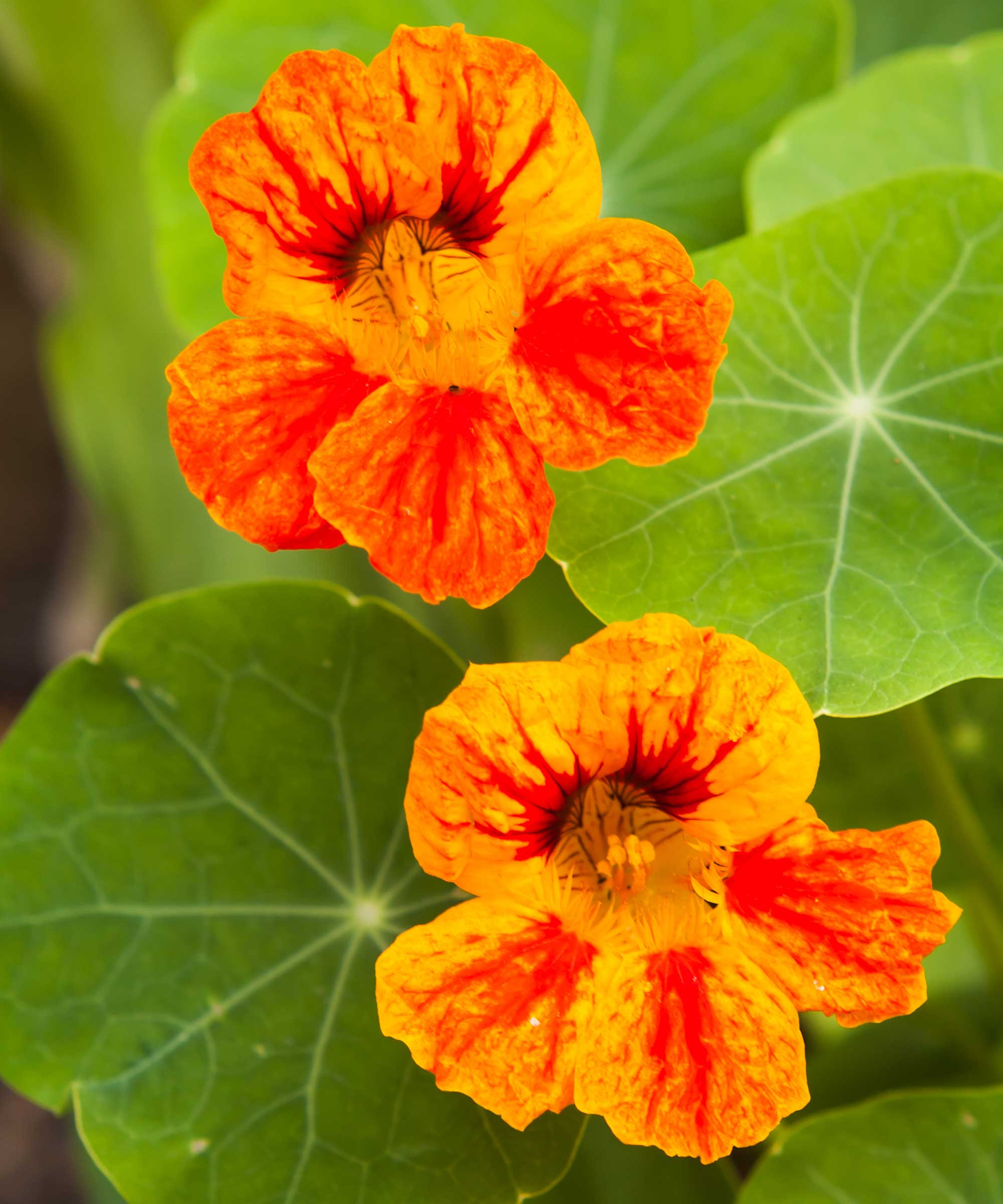
Nasturtiums are beneficial to use as trap plants, to attract beneficial predatory insects to help get rid of aphids and other pests, and to repel bugs too. You can not turn up your nose at those three benefits of planting nasturtium - I have commonly grown them in vegetable gardens as part of natural pest control. The plants are also bright and attractive, coming in a range of colors, and both their flowers and leaves are edible.
Known to repel: Cucumber beetle, squash bug, cabbage worms, Mexican bean beetle, Colorado potato beetle, whiteflies
5. Hyssop
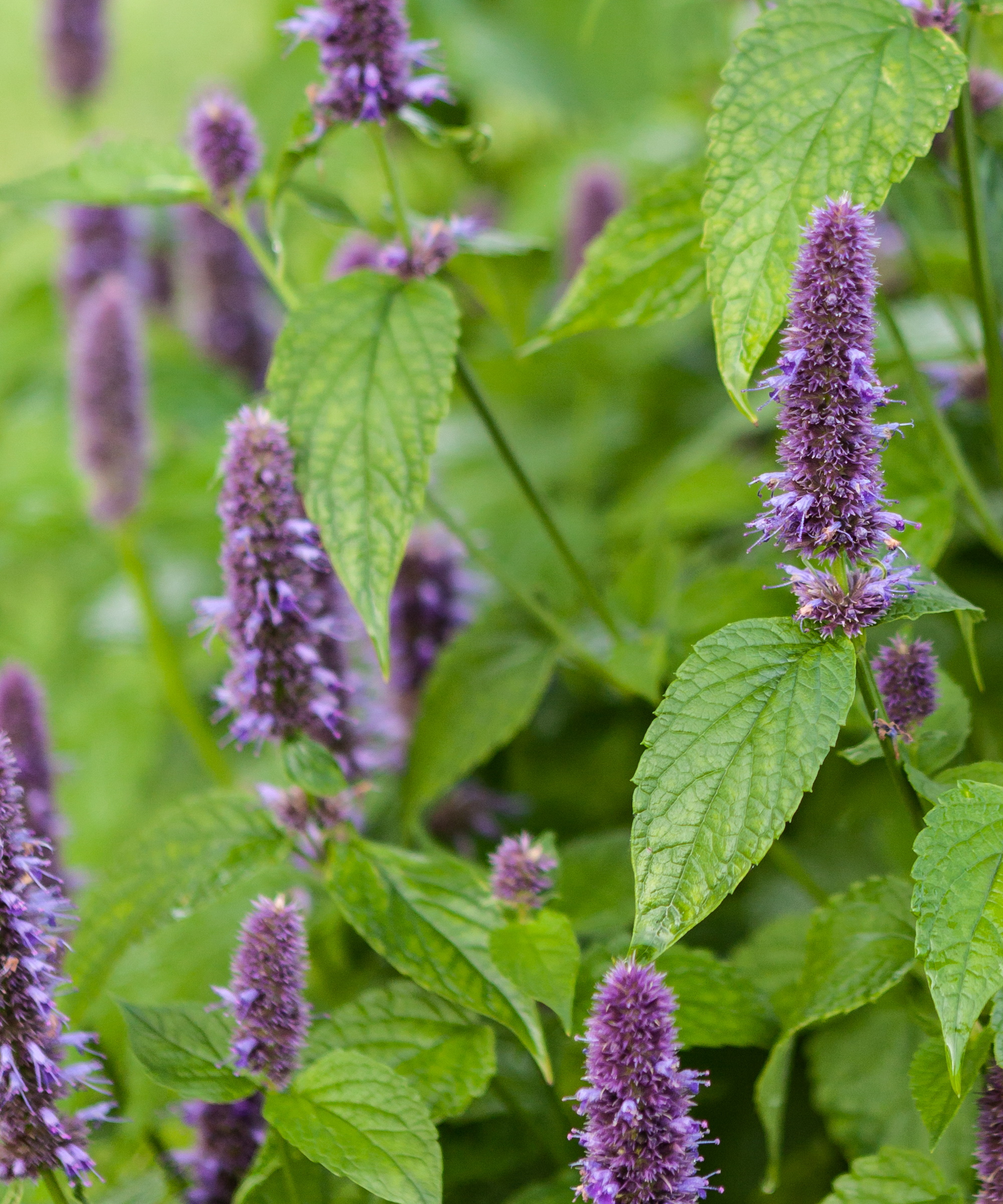
Hyssop is a great herb to grow and its flowers are fantastic too. The spikes of blue or purple flowers appear during summer and they are great plants for pollinators - adding this unusual herb to a vegetable plot will attract bees to the garden.
Hyssop is a perennial herb that contains essential oils and has a strong aroma that repels many pests. It is particularly beneficial to plant hyssop when growing cabbages, as they repel cabbage moths and cabbageworm. These pesky pests can also attack other vegetables in the brassica family like kale, cauliflower, broccoli and Brussels sprouts.
Known to repel: Cabbage moths, cabbage worms
6. Borage
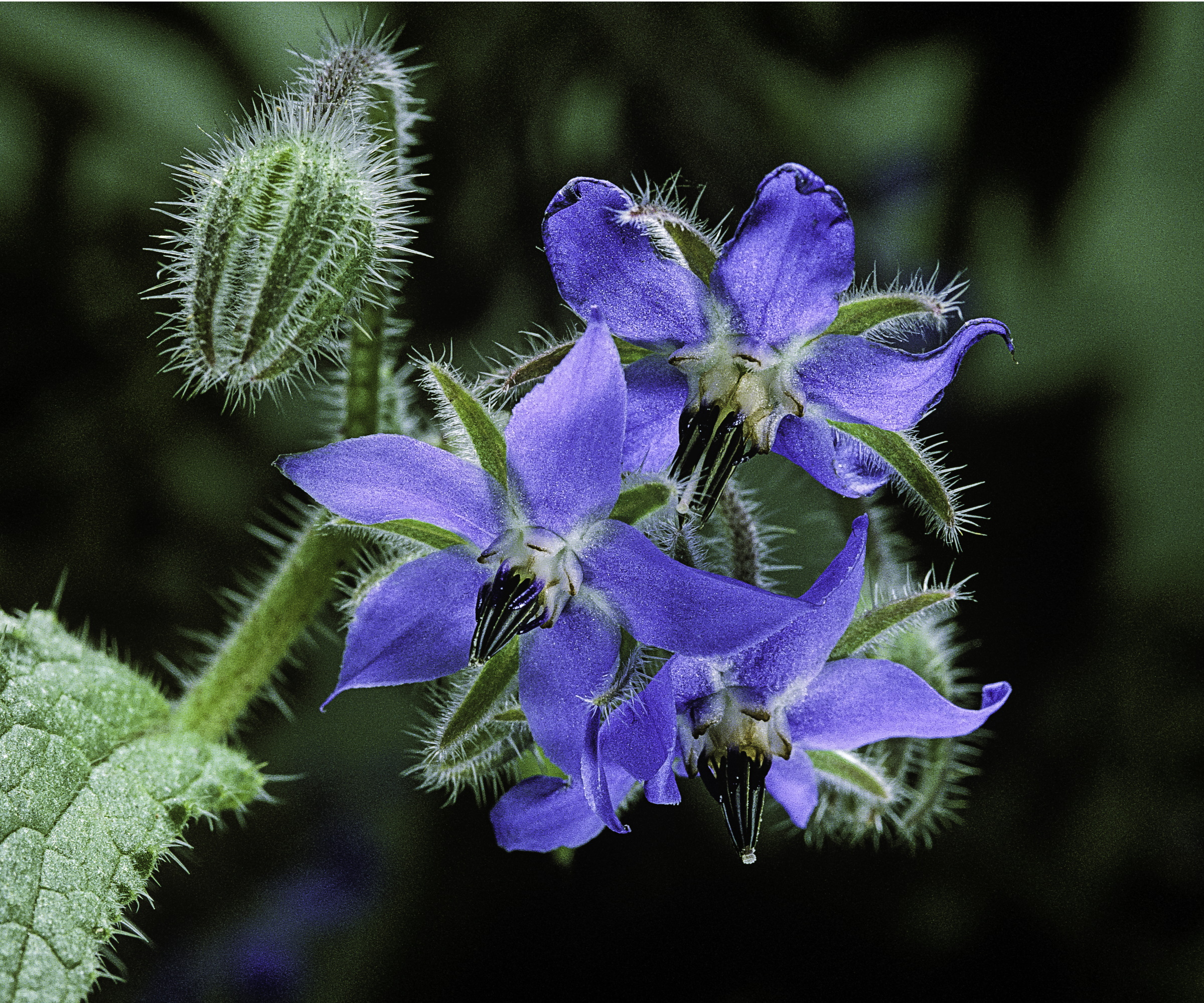
Borage is an annual plant that will set seed around the garden to reappear year after year. It produces glorious star-shaped blue flowers that are loved by bees and other pollinators. The blooms and leaves are also both edible.
Borage is a great tomato companion plant as it deters tomato hornworms - a major tomato pest that will chew leaves and defoliate plants. It is also a great partner for brassicas as it repels cabbage worms and cabbage moths. The beneficial insects attracted to borage will eat many other pests too and, for example, it is also a perfect companion plant for strawberries.
Known to repel: Tomato hornworm, cabbage moth, cabbage worm
7. Nepeta
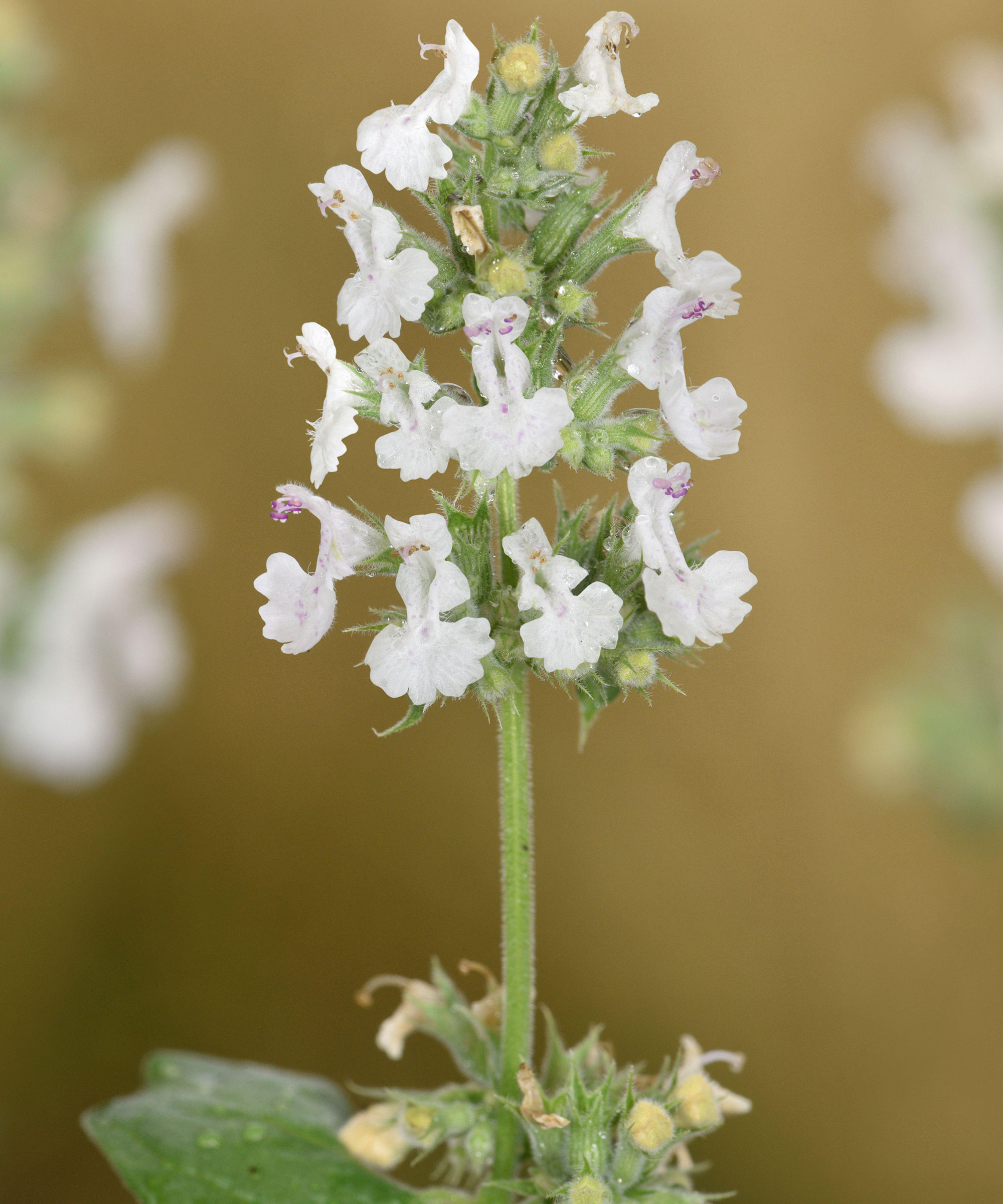
Nepeta is a fantastic pest-repellent plant that can look fabulous in a cottage garden border or a vegetable garden. The best variety for deterring pests is catnip (Nepeta cataria).
It is a perennial that produces an abundance of spikes full of small white flowers that can bloom throughout the summer and into fall. There is a long list of pests nepeta will repel, making the plant an ideal companion for many vegetable garden crops.
Known to repel: Japanese beetle, aphids, Colorado potato beetle, mosquitoes, cabbage looper, flea beetle, squash bug
8. Petunia
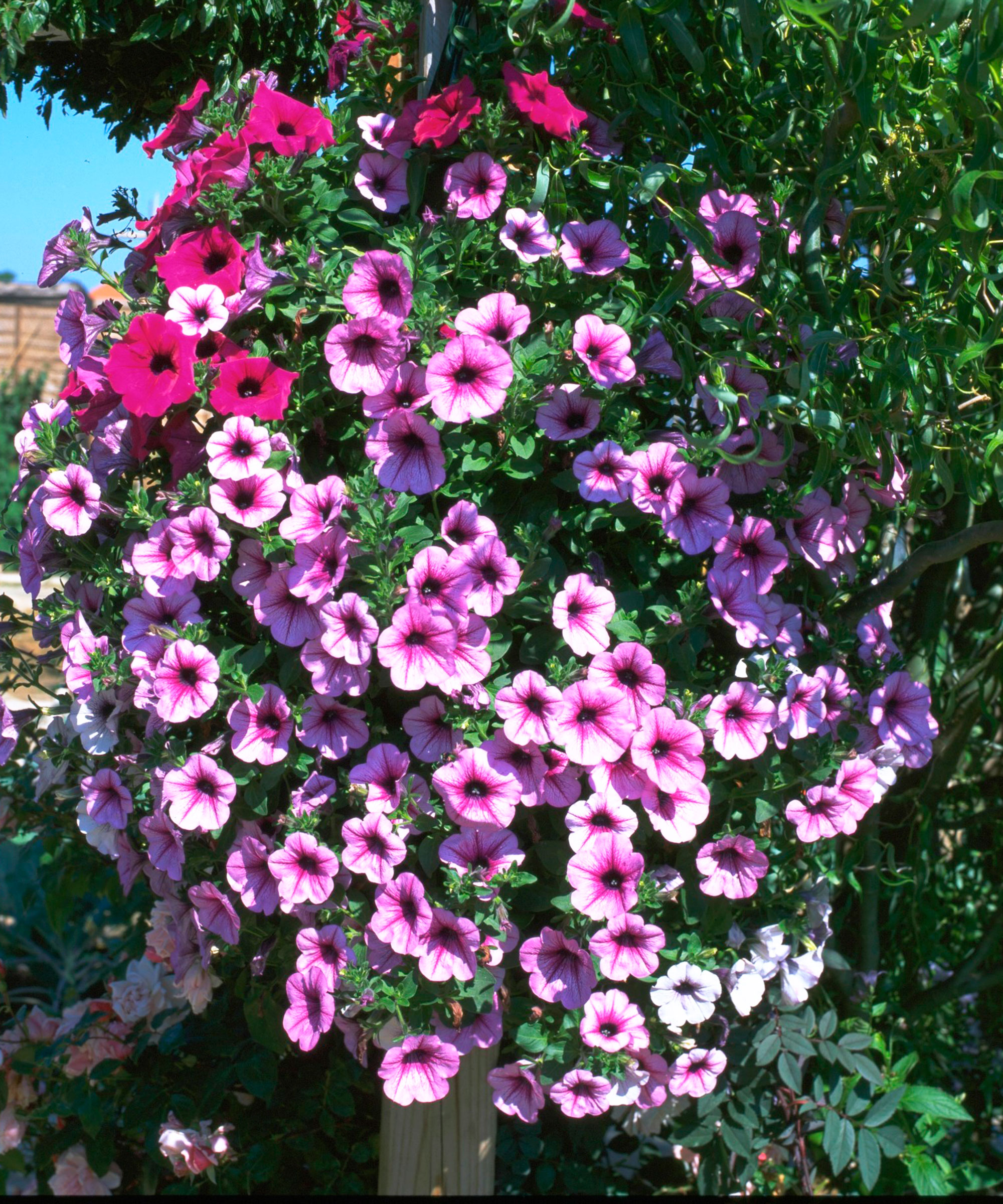
Petunias are popular annuals for flower beds and borders, pots, window boxes, and hanging baskets. However, they should also be planted in the vegetable garden. The simple-to-grow plants come in many different types, sizes, and colors and can bloom from spring through to the first frosts.
Petunias are a great option to plant if you grow potatoes, squash, tomatoes, or beans, as they can repel many common pests that trouble these crops.
Known to repel: Aphids, squash bugs, tomato hornworm, Mexican bean beetle, asparagus beetle, leafhoppers
See the range of petunia flower seeds at True Leaf Market
FAQs
Does lavender repel bugs?
Lavender does repel some garden pests, including aphids, mosquitoes, and moths, with its strong fragrance. There are many lavender varieties to pick from and English lavender has a stronger fragrance than French lavender. Lavandin is a hybrid plant and part of the lavender family - it features a more intense scent than other types of lavender.
Does mint keep bugs away?
Mint is another aromatic herb that can repel garden pests with its fragrance. It is thought that mint varieties such as spearmint and peppermint are the best options for repelling pests, including mites, spiders, and mosquitoes.
You can reap the pest control benefits of any of the above flowers in productive gardens of any size. It can be as simple as adding small pots of beneficial flowers to a small vegetable garden or a vegetable container garden to keep away pests. You can enjoy the flowers safe in the knowledge that the pests will not and that means better vegetables to harvest.

Drew has worked as a writer since 2008 and was also a professional gardener for many years. As a trained horticulturist, he worked in prestigious historic gardens, including Hanbury Hall and the world-famous Hidcote Manor Garden. He also spent time as a specialist kitchen gardener at Soho Farmhouse and Netherby Hall, where he grew vegetables, fruit, herbs, and cut flowers for restaurants. Drew has written for numerous print and online publications and is an allotment holder and garden blogger. He is shortlisted for the Digital Gardening Writer of the Year at the 2025 Garden Media Guild Awards.
